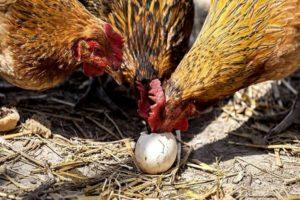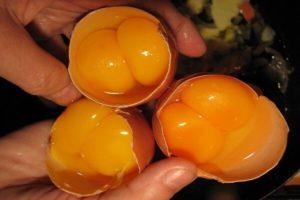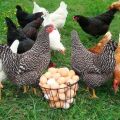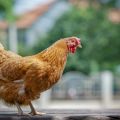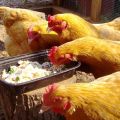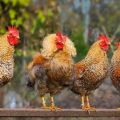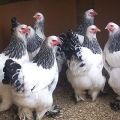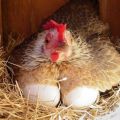Rules for the care and maintenance of chickens in winter for beginners at home
Laying hens are kept in specially prepared rooms in winter. Of course, we are talking about a chicken coop, which should be comfortable even in the coldest season. They are dealing with this issue in advance, before the onset of the first frost.
What should be the conditions in the chicken coop?
For most people, the poultry house is a shed specially designated for keeping chickens. There are those who convert the garage into a chicken coop for the winter period. Regardless of the place of detention, the chickens must be provided with certain conditions.
Lighting
Poultry farmers are most often interested in this question. The egg production of layers depends on lighting. Properly arranged lighting keeps fertile in winter.
Fluorescent lamps are best suited for this purpose. The common ones are weak and ineffective. To ensure full daylight hours, the lamps are switched on in the morning from 6 to 9 in the morning and in the evening from 5 to 9 hours. The lamps are mounted high to prevent birds from reaching them.
Ventilation
At home, you should take care of one more thing - ventilation. The coop should have fresh air to prevent the growth of bacteria that cause various diseases.
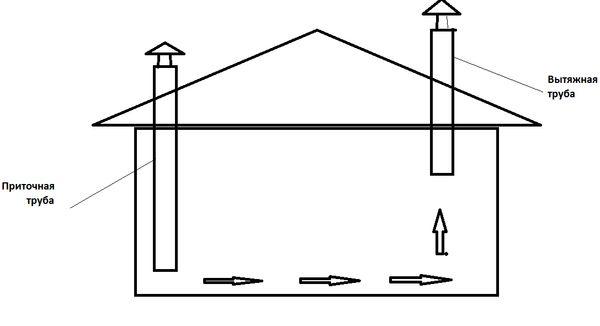
Installing an automatic relay makes it easier to care for birds in winter. A person sets a certain time at which ventilation, lighting and heating will turn on.
Briefly about natural heating
Chicken withstands temperatures not lower than 10 degrees in winter. If the indicator does not fall, the egg production of chickens is maintained. When cooling air in the room, a heater is additionally installed.
Natural heating will help maintain the temperature in the optimal range. As a rule, it consists of bedding and room insulation.
Litter
The floor in the coop is cleaned before winter and disinfected. Peat, sawdust, hay or straw are used as flooring. To prevent chickens from freezing, the bedding layer should be within 10-15 cm.
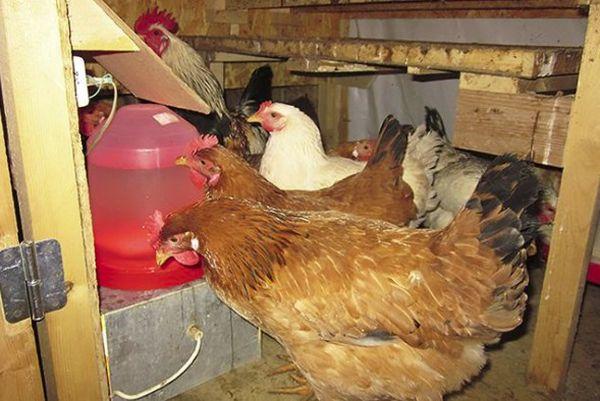
It is poured in parts, carefully tamping. Complete replacement of the floor layer is done during the warm season. In winter, they stir it up so that it does not stale. After that, a new layer of straw, hay, sawdust or peat is poured.
Few people know that droppings serve as a source of heat in a chicken coop. Methane is released during decomposition. This is why you cannot clean your chicken coop in winter.
Thermal insulation
Holes in the walls are sealed with putty in the fall, so that the putty has time to dry.The room is sheathed with plywood boards. It is imperative to inspect the hen house for drafts, since they should not be.
Additional heating
So that the chickens feel great in the hen house and continue to lay eggs, devices are installed to heat the room. This could be:
- lamp;
- heat gun;
- radiator;
- stove.
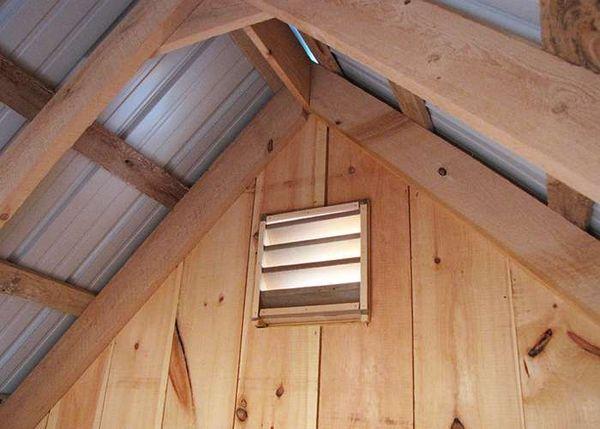
Along with the installation of the heater, the question arises of the need to ensure fire safety. Also, chickens should not have access to appliances. Otherwise, they may injure themselves out of curiosity.
Walking area
Even in the winter season, chickens should be outdoors. A daily walk can take no more than 15 minutes, so the chickens will not become overgrown with fat. In severe frosts, the body of birds continues to assimilate calcium, absorbing vitamin D.
Chickens are released outside into the courtyard, which is located near the chicken coop. The place is fenced off with a net to protect birds from predators. To prevent frostbite of the paws, wooden planks are scattered over the territory and bedding material is poured.
Keep your yard away from pets such as dogs. By barking, they scare the chickens, and the stress state of the latter negatively affects the carrying of eggs. Taking care of birds in this way maintains the health of chickens in proper condition.
Why do hens need hygiene?
The cleanliness of the chicken coop is directly related to the health of the birds. The accumulation of bacteria leads to parasitic and other diseases. Therefore, chickens must be kept clean.
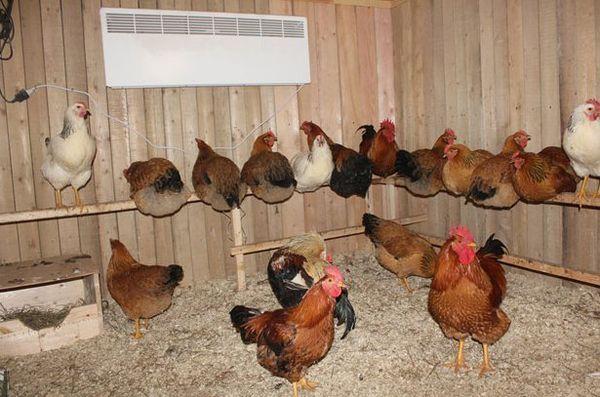
Since the litter does not change during the winter, breeders use a trick to keep it clean. And this does not imply any special care. Scattered grain around the coop will help prevent dropping of the droppings. Trying to collect grain, the chickens loosen the bedding and thus clean it.
Organization of meals for chickens in winter
Useful tips to follow:
- In winter, chickens are fed three times a day. This is due to the fact that the body of chickens expends a lot of energy trying to warm itself. In turn, energy enters the body along with food. Dry food is given in the morning and evening, and a mash is added for lunch. Long-term digestion of food provides birds with energy and, accordingly, warmth.
- In winter, the diet should include hay, dried in summer. It is useful for chickens to give nettles and branches of conifers.
- The combination of various feeds has good efficiency. Do not forget about fresh vegetables, wet mash and boiled cereals.
- Sunflower cake and seeds are added to the main feed. The body reacts positively to sprouted grain.
- Fish oil is added to roughage. In small amounts, it supports the body well. Various poultry food manufacturers offer bone meal and various vitamin and mineral supplements.
- Protein-rich food can increase egg production in chickens. Cottage cheese is periodically mixed into the feed. Serum is used for drinking.
- To strengthen bones, birds are given chalk, small shells, sand. Crushed and dried eggshells have exactly the same effect. Such additives strengthen the eggshell, which is also very important.
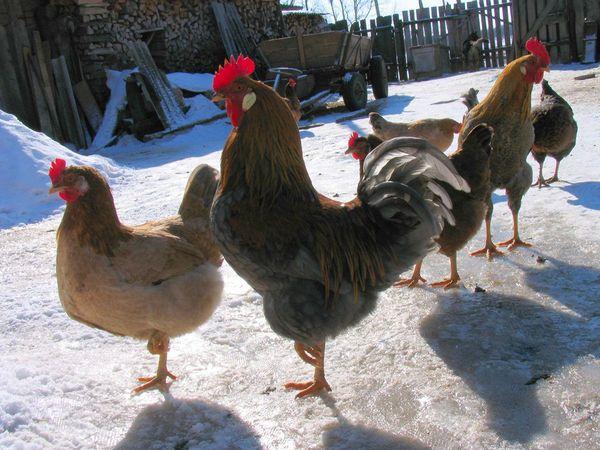
Drinkers should always be kept clean. If the chickens do not have time to drink water, they make sure that it does not stagnate and change to a new one. In winter, warm water is poured into the drinkers.
Poultry farmers recommend having both winter and summer drinkers in the arsenal.
How to calculate the right amount of feed
Novice poultry farmers often make mistakes when feeding chickens. They feed too much, worrying so that poor nutrition does not provoke serious problems. Thus, the chickens eat more food than they need.As a result, they gain extra weight, give up activity and lay eggs poorly.
Adult birds consume 130-150 g of feed per day. This indicator helps to calculate the amount of food needed for the entire herd.
If there is little feed left in the feeders until the next meal, then the dose is calculated correctly.
Increased productivity in cold weather
The first thing to take care of in winter is having a warm chicken coop. If the chickens do not lay well, the room may not be too warm. The insulated chicken coop increases egg production by 40%. At a temperature of 15 degrees and above, chickens rush perfectly.
Daylight hours in chickens should last no more than 14 hours. Otherwise, the life expectancy of birds is reduced. Extended daylight hours provoke premature molt.
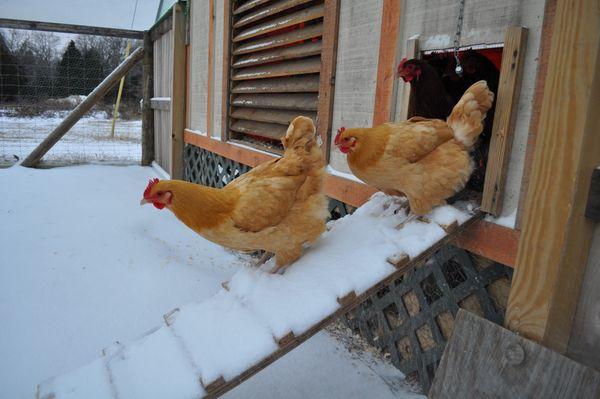
A rheostat, a special device responsible for the brightness of the lighting, will help control daylight hours. Its installation will facilitate the work of a person when caring for livestock.
Chickens are regularly fed greens in winter. With a large herd, greenhouses are sown with grass, which is used to feed the birds. The appearance of greenery in the diet of birds increases productivity by 50%.
It is important for people to know about the existence of another important rule, especially for novice poultry breeders. A chicken coop should not be home to many individuals. Better to make several rooms and separate chickens. Otherwise, they can die from the rapid spread of disease, which is typical for confined spaces.
In order for the chickens to rush constantly, there must be a secluded place in the hen house. With a large herd, this is impossible to achieve. A secluded place specially designated for this purpose will save the bird from stress, and the person will receive the desired number of eggs.
How to prevent chicken diseases in winter?
For the birds to be healthy and to lay eggs, no special events are needed. Chickens must receive proper care and nutrition. This will help avoid many diseases and get fresh eggs on a regular basis.
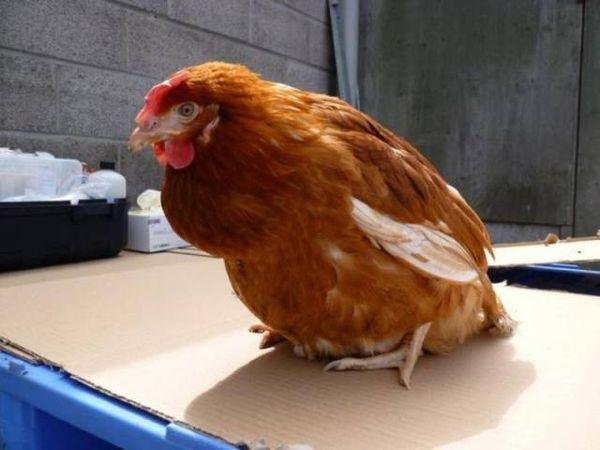
Prevention is as follows:
- Factors that can become sources of stressful situations are completely excluded.
- The birds are provided with a nutritious and varied diet.
- If a sick rooster or laying hen is found in the flock, they are immediately isolated.
- The room is insulated, and drafts are removed.
- Feeders and drinkers are kept clean.
- In the room where chickens winter, additional heating equipment is installed. Air humidity is also constantly monitored.
- There must be a flutter near the perches.
- The quality of the litter on the floor is checked regularly.
After studying the list, some people think that this is unrealistic and very difficult. But these are the optimal conditions in which birds should live. If the usual behavior of the layers has changed, urgent action is taken.
A person who keeps chickens at home should be familiar with the diseases of birds, their signs and treatment. Even basic knowledge will help when problems arise.
